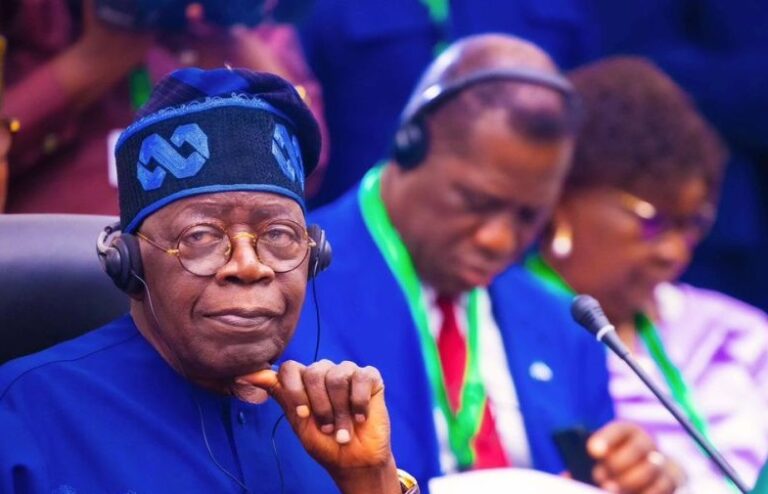Earlier this May, the Federal Government introduced the ‘Nigeria First’ policy, directing all federal ministries, departments, and agencies (MDAs) to give priority to locally produced goods and services in public procurement. While the initiative sparked optimism, especially among manufacturers and the organized private sector, many industry experts are skeptical—arguing the policy may follow the same fate as previous unfulfilled promises.
The policy aims to stimulate domestic manufacturing, reduce import reliance, and instill national pride in Nigerian-made products. However, critics point out that this is not Nigeria’s first attempt at such an initiative. Policies like Buy Nigeria and Executive Orders 001, 003, and 005 offered similar promises, yet delivered little impact.
A Sector Struggling to Survive
Despite its potential, the manufacturing sector continues to battle low productivity and declining GDP contributions. In 2024, it recorded a modest growth of just 1.38% amid growing macroeconomic instability, high borrowing costs, dwindling consumer purchasing power, unreliable infrastructure, and expensive logistics.
According to Frank Ike Onyebu, Executive Director of Universal Luggage Industries Ltd and former chairman of the Manufacturers Association of Nigeria (MAN), Apapa branch, the government has introduced multiple policies in the past with good intentions—but implementation remains the Achilles’ heel.
“Every government rolls out policies aimed at industrial revival, but they often fade away without action. Until the environment becomes conducive for manufacturing, we’re going nowhere,” Onyebu said.
He stressed that government leadership by example is crucial. If federal agencies start purchasing locally assembled vehicles, for example, domestic automotive production will expand—much like China’s early manufacturing era, which evolved from mockery to dominance in global markets.
Onyebu added that past Executive Orders had zero tangible benefits for manufacturers and expressed concern that unless implementation drastically improves, this new policy will likely end up as another unfulfilled promise.
Policy Recycling or Real Reform?
Dr. Femi Egbesola, National President of the Association of Small Business Owners in Nigeria (ASBON), echoed these concerns. He described ‘Nigeria First’ as merely a rebranded version of previous policies that have repeatedly failed.
“We’ve seen this before—different names, same policy. The government is supposed to be the first customer for Nigerian products, but where is the evidence?” he asked.
He criticized the government for frequently crafting policies without consulting key stakeholders, leading to flawed execution and weak enforcement mechanisms.
“Policies that exclude the real sector from their design usually die on arrival. You cannot expect impact without proper monitoring, evaluation, and follow-up,” he added.
According to Egbesola, the current reality is grim: more SMEs are collapsing than emerging, and policies like the Business Facilitation Act and ease of doing business reforms have shown no measurable impact on struggling businesses.
Implementation: The Deciding Factor
Dr. Muda Yusuf, CEO of the Centre for the Promotion of Private Enterprise (CPPE), pointed out that the ‘Nigeria First’ policy is limited to public procurement and is not a full trade policy—making its scope and effectiveness dependent on strict adherence by MDAs.
“Previous Executive Orders aimed to boost local patronage, but without enforcement, they meant nothing. This time must be different,” he said.
Yusuf emphasized that since the government remains Nigeria’s largest spender, its procurement decisions can significantly impact local production. He estimated that even if only a quarter of the ₦54 trillion national budget goes into buying Nigerian-made goods, over ₦10 trillion would circulate within the local economy.
He noted that while the policy could benefit producers of furniture, automobiles, textiles, and pharmaceuticals, its impact on fast-moving consumer goods (FMCGs) will be minimal since these are mostly purchased by private individuals.
“Local production will only thrive if supported by affordable infrastructure and access to credit. Without reducing operational costs and protecting local businesses through trade policies, the policy alone is ineffective,” Yusuf warned.
Final Thoughts
While ‘Nigeria First’ has generated a fresh wave of optimism, industry stakeholders agree on one point: implementation will determine its fate. Without firm enforcement, stakeholder involvement, and supportive economic reforms, this new policy risks becoming yet another missed opportunity in Nigeria’s long quest for industrial growth.

